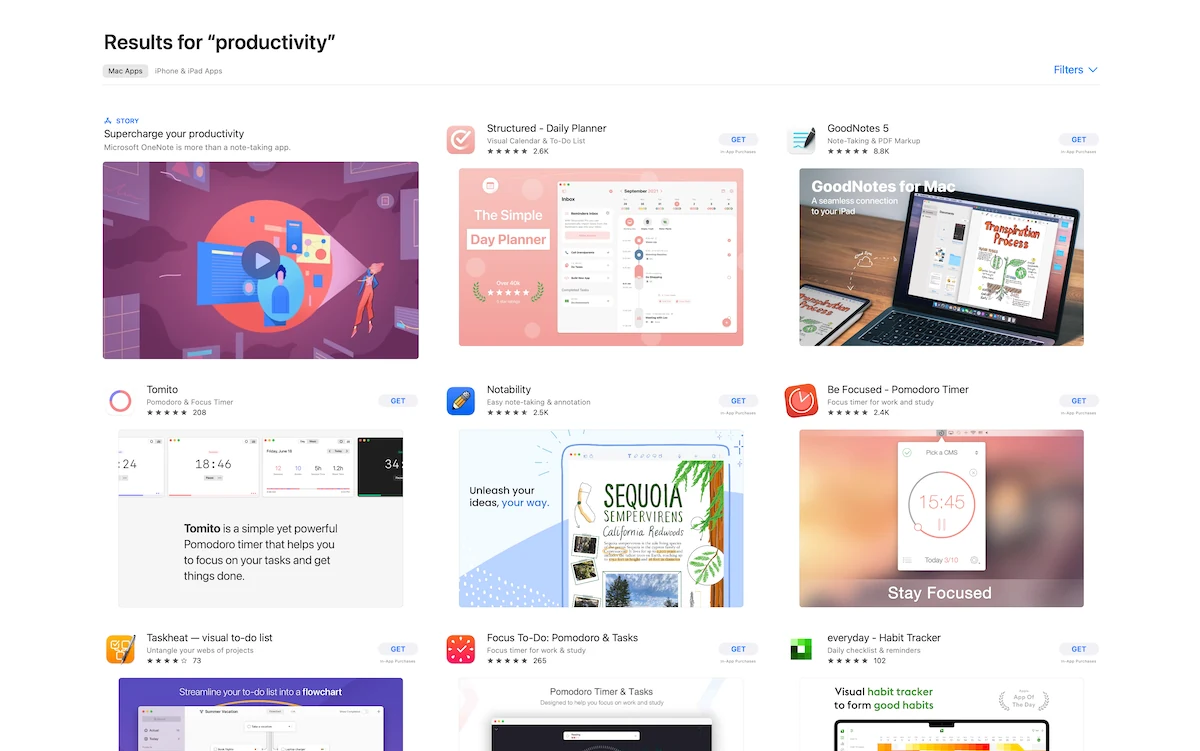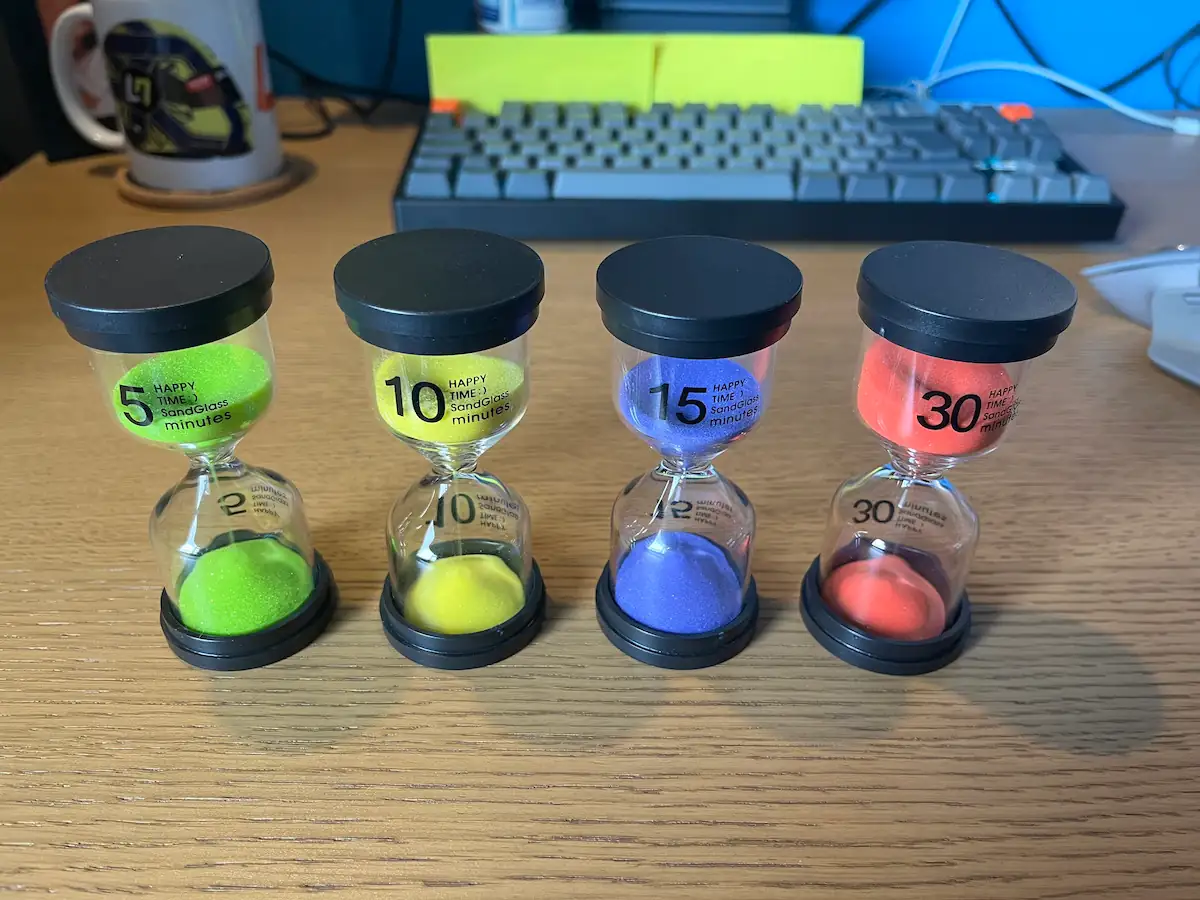Staying productive as a freelancer can be tough at times, and as we’re typically juggling a lot of tasks at one time, it can get pretty stressful. That’s why I’ve put together a list of freelancer productivity tips to help you get more done!
My 10 freelance productivity tips are:
- Stay organized
- Learn your productivity cycle
- Focus on one thing at a time
- Clear things up with clients at the start
- Use productivity tools
- Take regular breaks
- Plan your day the night before
- Remove distractions
- Break down tough tasks
- Use a rewards system
Below, I’ll go through each of these tips in more detail, providing insight from my own experience to help you become a more productive freelancer.
10 Productivity Tips For Freelancers
1. Stay Organized
According to financial counsellor Larry Burkett, “Organization is an absolute necessity, not an alternative.” However, staying organized is easier said than done! Many of us are messy by nature, and unless you’re meticulous and a perfectionist – or already have your organization sorted of course – you probably don’t know where to start.
Take Control Of Your Tasks
First, create a to-do list. For old-schoolers, all you need is a planner. Once a client sends you an assignment, jot down the due date, expectations, and other important details. If you’d rather a digital option, try using a reminders (my personal favorite) or calendar app. This is a sure-fire way to stick to deadlines even if your memory isn’t the best!

Clear Some Space
To stay organized, you also need space to do your work. Clear your desk before getting to work, and don’t just balance your laptop on a stack of paper. Your online space must be clean as well. Keep your open tabs to a minimum, and even consider blocking distracting websites and social media (there are various extensions that can help you do this).
Staying organized is the first step to being a productive freelancer. Next, you need to think about your own productivity cycle.
2. Learn Your Productivity Cycle
Your productivity cycle is what determines the kinds of tasks you do best at different times of the day. Unlike robots, we humans don’t always respond well to doing the same task for the whole day. It gets mundane and even miserable after a while. If you learn your productivity cycle, you can maximize your efficiency in every task you do.
As my dad always quips, “There’s a right time for everything.” For me, mornings and evenings are a good time to do demanding tasks, while afternoons are better for admin work. A good way to study your productivity cycle is to think about your feelings throughout the day.
- When do you feel the most motivation? Save this time for the most demanding tasks.
- What do you feel like doing at different times of the day? Sometimes what you want to do is actually the right thing to do!
- What’s your current daily routine like? Can you think of some ways to change it to get more done?
Stopping for a moment and pondering these questions can let you productively manage your day, benefitting your freelancing journey in the long run.
3. Focus On One Thing At A Time
Doing many things at one time sounds efficient, but this actually isn’t that productive. Even if it seems like there are lots of things to complete in a short time, multitasking doesn’t usually result in your best output overall. Plus, you’ll likely have to deal with an unhappy client (or clients). If you focus on even just two things at once, your effort on each one is really halved. This obviously means the quality of the output for each task takes a knock too.
Focusing on one thing at a time enables you to get the job done faster, and get better results. Once you’ve finished one task, you can move on to the next one. It might be tempting to try and do a little bit of each task all at once, but it’s very unlikely that you’ll save any time. Usually, you just end up taking longer.
Remove Distractions
If you’re finding it hard to put all your attention into one thing, you should get rid of all the distractions around you. Your games, apps, family and friends can all serve as distractions. Try to set boundaries while you’re working to minimize these distractions.
4. Clear Things Up With Clients At The Start
Many rookie freelancers make the mistake of not following their clients’ guidelines (whether they tell you what they want clearly or not), and therefore have to make multiple revisions. This is time consuming and it looks bad on you for providing your client with sub-standard work.
To eliminate the chances of this happening, clear everything up with your clients beforehand. This way, you don’t waste any extra time going back-and-forth with your client while also trying to get the work done.
Get An In-Depth Outline
A good tip is to ask your client for an outline of what they expect before you start your work. This guide underlines what your client expects of you, and how they imagine the final product will turn out. You even can take it a step further by sending your first draft or initial groundwork to your client and check if you’re heading in the right direction, before proceeding with the full task.
Getting a clear outline means you don’t spend time wondering what the client wants, or trying to have a go at things even though you know you’re going to struggle. By sending them a snippet of the task before you finish it, you can ensure you’re doing what they want from the start. This can help make you more productive as you’re focused on the task at hand rather than wondering how to do it.
5. Use Productivity Tools
Productivity tools can be invaluable for freelancers in managing their workflow, staying organized, and optimizing their productivity. Tools like Notion (my personal favorite), Trello, Asana, or Monday.com can help you organize your tasks, set deadlines, and track progress.
These tools allow you to create task lists, assign priorities, and collaborate with clients or team members, ensuring that nothing falls through the cracks.
Time-tracking apps such as Toggl, Harvest, or RescueTime can help you monitor how you spend your time. They allow you to track the time spent on specific tasks, projects, or clients. This not only helps with accurate billing but also provides insights into your work patterns and productivity levels.
When choosing productivity tools, consider factors such as the user interface, integration with other tools you use, mobile accessibility, and the specific features that align with your needs. Experiment with different tools to find the ones that best suit your workflow and help you stay organized and productive as a freelancer. Some tools that freelancers rave about might not work for you, so experiment with a few to find ones that do.
6. Take Regular Breaks
Previously, I mentioned that you should focus on the task at hand, and not let any distractions get in the way. However, breaks are important too. This could be a break to get a glass of water, a 5-minute nature appreciation session, or even a short bit of exercise. These work time-outs can help rejuvenate and freshen up your mind, prepping you for the next work session.
Many people spend their breaks browsing social media or playing on their phones. However, I find this contradictory to the idea of taking a break. The purpose of a break is to let you relax for a while, resting your eyes and mind. Social media and online games will just distract you even more from your work, and perhaps be exhausting, rather than revitalizing.

So, taking short but regular breaks can help boost your motivation levels, energizing you to continue pressing on and eventually completing the task. Just make sure you take the right kind of break! Taking breaks can also help you prevent freelancer burnout.
7. Plan Your Day The Night Before
If you fail to plan, you plan to fail. Planning, even in your head, can make the difference between having a productive or an unfruitful day.
Adapting your day on the go is important. But without a plan to start you on the right foot, your goals for the day are baseless. Planning not only gives you goals to work towards, but it also helps with your organization, which was an important point we established in the first tip.
Since many freelancers struggle to set aside time to plan properly during the workday, doing it before bed is a good solution. Even just 5 minutes before you go to bed can prove beneficial and give you something to work with as soon as the next day begins. This eliminates any time wasted thinking about where to start.
Of course, some people might respond better to weekly or monthly planning – simply do whatever suits you best.
8. Remove Distractions
Out of all of our freelance productivity tips, this one is probably the hardest to put into action. With easy access to the internet and other technologies, it’s hard to stay away from online interaction throughout the day. However, if you want to maximize your productivity as a freelancer, you need to set all your distractions aside and focus on the task at hand.
Distractions don’t just include your electronic devices. Even talking to a friend or the anticipation of the exciting event you’re attending later are both examples of distractions. In general, try not to let your mind wander off the objective you’ve set throughout the day.
Isolation Boxes
Of course, removing distractions is difficult even for highly motivated people. If you’re really struggling, you could try locking your devices in an “isolation box.” You put your phone in this box and you can only take it out after a certain period of time. Yes, people are so addicted to the internet that companies have designed secure boxes to keep us away from them – by choice!
Blocking Out Distractions
If locking your phone in prison for the day isn’t your cup of tea, just stick it in another room. If your phone isn’t the problem, and instead it’s things or people around you that are distracting you, find a quiet space to work instead.
But this is often tough as a freelancer working from home with others around you all the time. In this case, try wearing headphones and listening to instrumental or classical music to block out the noise around you.
9. Break Down Tough Tasks
Sometimes, looking at a huge obstacle discourages you from trying to climb over it. This is the case for many beginner freelancers, especially with clients that have high expectations. Perhaps they’ve put a tight deadline on a job. This can look intimidating, especially in the beginning when you’re not quite sure what your threshold for work is in a given timeframe.
Instead of just rejecting the job or asking for more time, you can instead break the task down into a couple of smaller ones. By breaking down tough tasks, you’ll give yourself an easier time completing smaller, bite-sized ones. Eventually, you’ll put all these small projects together, forming one large project, which you can then submit to your client.
Stop Getting Overwhelmed
This technique of dividing the workload and conquering it bit by bit can help prevent you from getting overwhelmed. Essentially, you’re playing tricks on your mind by breaking down tough tasks, making yourself think that multiple smaller tasks are easier than one big job.
However, your mind might work in the opposite way and see lots of small tasks as more intimidating than one large one. This is a prime example of the fact that we’re all different. What works for one freelancer doesn’t always work for the next, so don’t feel disheartened if this tip (or any other tip) doesn’t make you a more productive freelancer.
10. Use A Rewards System
Finally, if the satisfaction of completing a job, the good feedback from your client, or the compensation are not spurring you on to complete a job, try making your own rewards system. For example, for every task that you finish and send to a client, give yourself 15 minutes of gaming time. Or for every hour of work you complete, go and grab a few chocolates or sweets.
While this may sound juvenile, your brain is wired to function like a rewards system. Dopamine, a neurotransmitter responsible for the feeling of pleasure, is your brain’s way of telling you that you’ve done something good, like eating calorific food. Create your own system that rewards you for doing good things in your freelancing career.
Choosing Your Rewards
You can modify your reward system to feature what you treasure the most. It can be tough to stick to a rewards system that you make up, so feel free to get creative with it. If you want to reward yourself with time on your phone, you could set a lock on it for a given timeframe within which you need to get to work. Once you finish an hour’s work, your phone unlocks, giving you the reward.
This is just one example, and this approach might not work for you. However, it’s a great way to get more enjoyment out of your workday as a freelancer, and it can help you become more productive in the process!
Staying Productive As A Freelancer Is Key
It can be tough to stay productive when freelancing, but hopefully my tips above help you get more things done! We have plenty of content all about getting the most out of your freelancing career over on the blog, including articles on freelancing time management, which freelance jobs pay the most, and much more! Also check out our list of motivational freelancing quotes.
Freelance Ready is reader-supported. That means some links on this website are affiliate links. If you sign up or make a purchase through these links, we may earn a commission.

